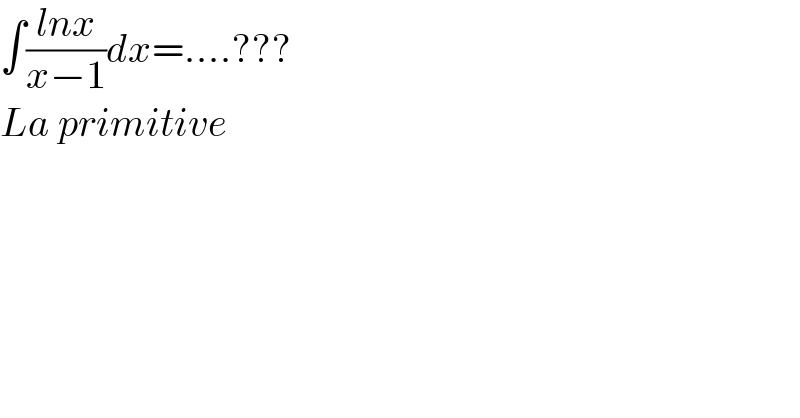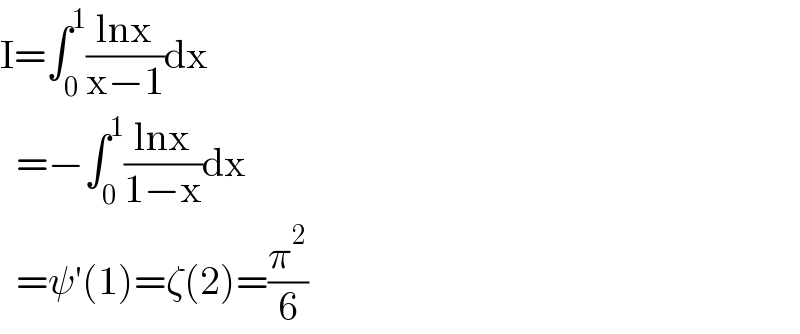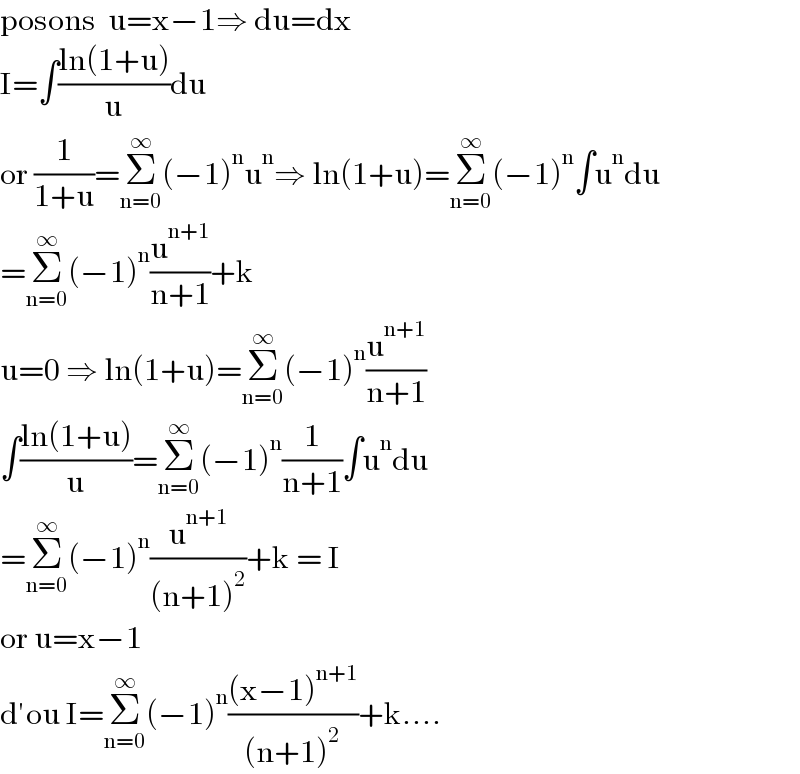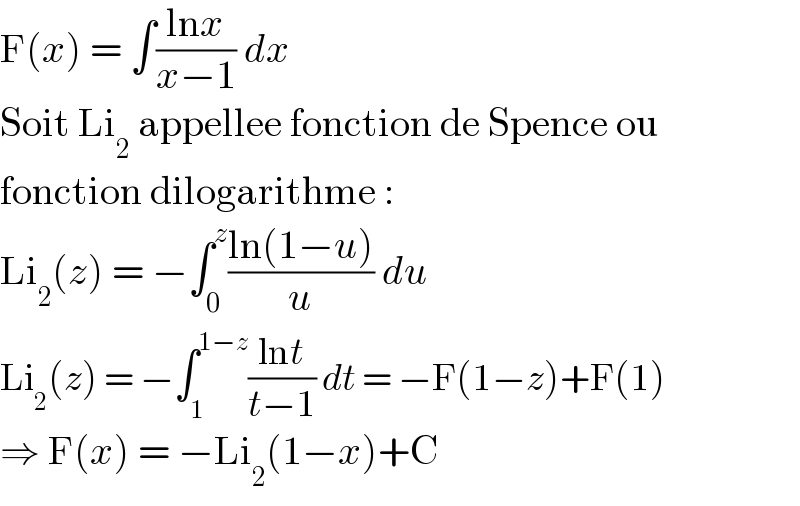
Question and Answers Forum
Question Number 146202 by lapache last updated on 11/Jul/21

Answered by Ar Brandon last updated on 12/Jul/21

Answered by puissant last updated on 12/Jul/21

Answered by Olaf_Thorendsen last updated on 12/Jul/21

Commented by puissant last updated on 12/Jul/21

Commented by puissant last updated on 12/Jul/21

